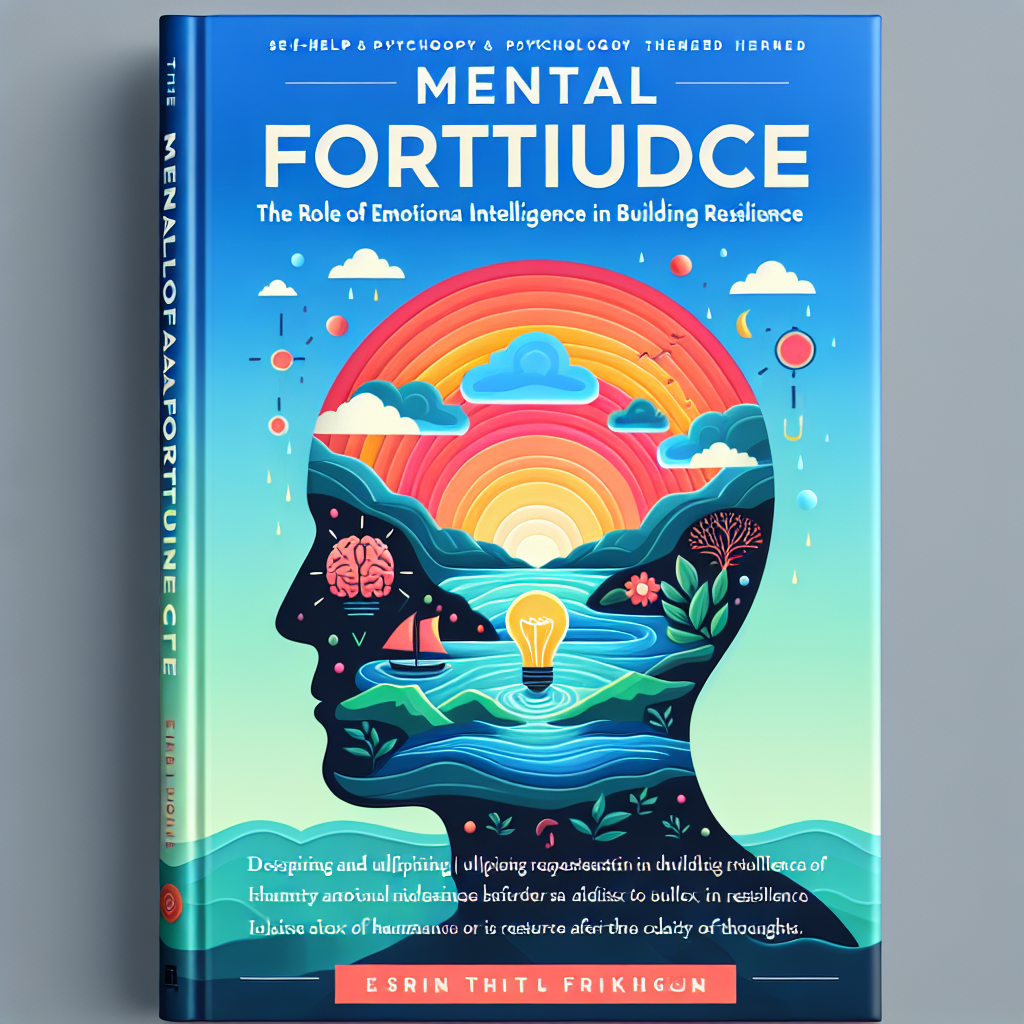Introduction
In today’s fast-paced and often unpredictable world, the ability to bounce back from adversity is more crucial than ever. Mental resilience, often referred to as mental fortitude, is the key to navigating life’s challenges—be it in the workplace, personal relationships, or mental health. Yet, what underpins this resilience? Emotional intelligence (EI), the ability to understand and manage our emotions and the emotions of others, plays a significant role in shaping our mental fortitude. In this article, we’re diving deep into Mental Fortitude: The Role of Emotional Intelligence in Building Resilience and how blending EI with resilience cultivates not just survivors, but thrivers.
The Interconnection Between Emotional Intelligence and Resilience
Understanding Emotional Intelligence
Emotional intelligence comprises four core competencies: self-awareness, self-regulation, social awareness, and relationship management. Each component interacts and reinforces the development of emotional intelligence, allowing us to navigate social complexities and make informed decisions.
- Self-Awareness: Recognizing our emotions and their impact on our thoughts and behaviors.
- Self-Regulation: The ability to manage our emotions and impulses.
- Social Awareness: Understanding the emotional cues of others.
- Relationship Management: Navigating social interactions and relationships effectively.
Building Resilience Through Emotional Intelligence
Resilience is not merely about resilience in the face of being knocked down; it is about knowing how to rise up stronger. This is where emotional intelligence weaves its magic. When we harness our emotional intelligence, we enable ourselves to cope better, adapt more efficiently, and respond rather than react to stressful situations.
Key Components of Mental Fortitude
1. Self-Control
Self-control is vital for executing on long-term goals and resisting short-term temptations. For instance, a manager suffering from high stress may find it easy to lash out at team members. However, with higher emotional intelligence—specifically self-regulation—this manager can recognize their emotional state and choose a constructive response instead.
2. Optimism
Optimism is the essence of mental fortitude. Those with higher emotional intelligence tend to possess a more positive mindset, allowing them to interpret challenges as opportunities for growth. A quintessential case study is that of a renowned sports team that turned their season around after facing significant losses. The coach focused on emotional intelligence training, emphasizing optimism and collaboration among players, which eventually led to remarkable performance improvement.
3. Social Support
Emotional intelligence fosters stronger social networks, which are crucial for resilience. When facing adversity, individuals with high EI are more likely to seek help, leading to more robust social support systems. A study involving participants experiencing workplace burnout showed that those with high emotional intelligence actively sought connection with colleagues, which was pivotal in their recovery.
Case Studies: Real-World Applications
Case Study 1: The Transformative Effect of EI in Corporate Settings
A tech company experiencing high turnover rates implemented an emotional intelligence training program for their employees. Over six months, they recorded a 30% decrease in staff turnover and a notable increase in team collaboration. Employees who felt understood were more engaged and willing to support one another, exemplifying Mental Fortitude: The Role of Emotional Intelligence in Building Resilience in action.
| Before EI Training | After EI Training |
|---|---|
| 60% turnover rate | 30% turnover rate |
| 40% employee engagement | 75% employee engagement |
Case Study 2: Athlete Performance
An elite gymnast underwent emotional intelligence coaching to address performance anxiety. Through self-awareness exercises, she learned to recognize her emotional triggers and employ self-regulation techniques. This transitioned her from fear-driven performances to more focused and confident routines, showcasing how Mental Fortitude: The Role of Emotional Intelligence in Building Resilience transcends disciplines.
Nurturing Emotional Intelligence
To enhance emotional intelligence and build mental fortitude, consider these actionable steps:
- Practice Mindfulness: Engage in mindfulness to become more self-aware of your emotions.
- Journaling: Reflective writing can help process emotions and improve self-regulation.
- Empathy Exercises: Engage in situations where you practice empathy to boost social awareness.
- Feedback Loops: Cultivating relationships where constructive feedback is welcomed aids in relationship management.
Summary of Key Insights
- Emotional intelligence is the cornerstone of mental fortitude, influencing resilience.
- Higher self-regulation and awareness lead to more adaptable, resilient individuals.
- Fostering a supportive social network can amplify resilience during challenging times.
Conclusion
The synergy between mental fortitude and emotional intelligence is potent. When we cultivate our emotional skills, we enhance our resilience, enabling ourselves to thrive amid challenges. The global landscape requires individuals who can adapt and transform adversity into growth; therefore, harnessing Mental Fortitude: The Role of Emotional Intelligence in Building Resilience is more than just a personal journey—it’s a vital necessity.
FAQs
1. What is emotional intelligence?
Emotional intelligence refers to the ability to recognize, understand, and manage our own emotions while also recognizing and influencing the emotions of others.
2. How is resilience defined?
Resilience is the capacity to recover from difficulties, adapt well in the face of adversity, and move forward after challenges.
3. Can emotional intelligence be developed?
Yes, emotional intelligence can be developed through training, practice, and conscious effort, particularly in self-awareness, regulation, and empathy.
4. Why is emotional intelligence critical for leaders?
Leaders with high emotional intelligence can foster better team dynamics, navigate conflicts effectively, and enhance overall workplace morale, leading to improved organizational performance.
5. How does optimism relate to resilience?
Optimism allows individuals to see challenges as opportunities for growth, making it easier for them to keep moving forward despite setbacks.
Final Thoughts
Embracing Mental Fortitude: The Role of Emotional Intelligence in Building Resilience not only empowers individuals but also creates a ripple effect, enriching communities and fostering healthier relationships. The road to resilience and emotional intelligence may be challenging, but it is undeniably worthwhile. Together, let’s take the steps needed to thrive in our complex world.

